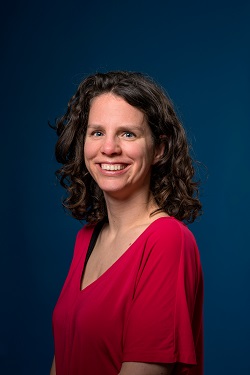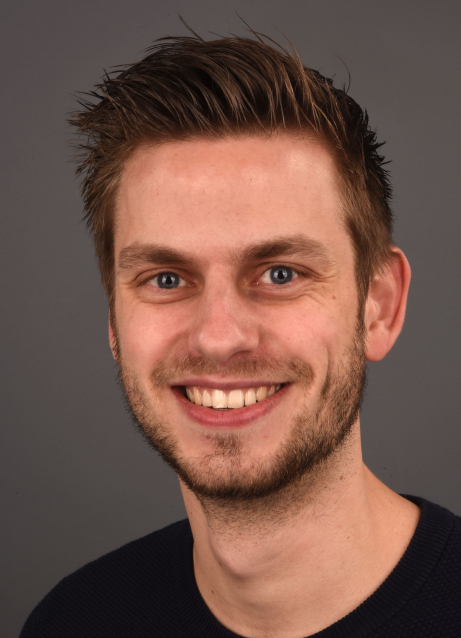Two UM researchers in the race for the title Science Talent 2021
Two UM academics have been nominated for this year’s Science Talent competition from New Scientist. A total of 15 talented academics from the Netherlands and Flanders are currently in the running for the title. With as many online votes as possible, Aurélie Carlier and Kay Deckers have a chance to be one of the top five finalists. Will you help them? Cast your vote on the New Scientist voting page. The page is in Dutch, but all you have to do is select the researcher’s name, enter your email address, and click the ‘STEM!’ button. The voting runs until 3 May.
What do Aurélie and Kay do exactly?
In order to make the choice a little easier, we would like to introduce you to the two talented UM academics:
Aurélie Carlier: Before pilots step into an aeroplane, they first practise difficult manoeuvres in a flight simulator. Why don’t we use this type of virtual training room for medical research? This is the question Aurélie Carlier (MERLN) asked herself. She developed a ‘virtual patient’ to better understand bone fractures. Behind the computer simulations are mathematical models that describe tissue repair and interactions between cells and biomaterials. The virtual patient contributes not only to a better understanding of bone healing, but also to the development of new therapies. This would normally require animal testing or large clinical studies. Aurélie’s simulations speed up research by mapping out what works well and not so well. The results are then applied and built upon ‘in real life’. This is also important for rare diseases for which, due to the small number of patients, large clinical studies are not possible.
Kay Deckers: The population is continuing to age. As a result, dementia could eventually become the number one ailment in the Netherlands and Belgium. Dementia still cannot be cured, but the personal risk of developing dementia can be reduced. Kay Deckers (Alzheimer Centrum Limburg) sees it as his personal mission to make people aware of how they themselves can influence this. He has identified the most important positive and negative factors that determine the risk of developing dementia. An important protective is a healthy lifestyle. Deckers combined his findings into a score that provides insight into your brain health. He also created an app that helps to keep the brain fit.

Also read
-
Nienke Verstegen, researcher at De Forensische Zorgspecialisten, has conducted research on aggression within forensic care and its impact on patients and staff. On July 6, 2023, she will receive her PhD from Maastricht University with her dissertation 'Hurt people hurt people. Characteristics and...
-
Patients admitted to hospital due to a severe COVID-19 infection exhibit no evidence of brain damage caused by the disease. This is the conclusion of an extensive study led by Maastricht University.
-
Due to the Western lifestyle with a high fat diet combined with little exercise, more and more people in the Netherlands are overweight or even obese. This causes an increased risk of type II diabetes. What can be done about this besides a healthier lifestyle? The answer comes from an unexpected...


